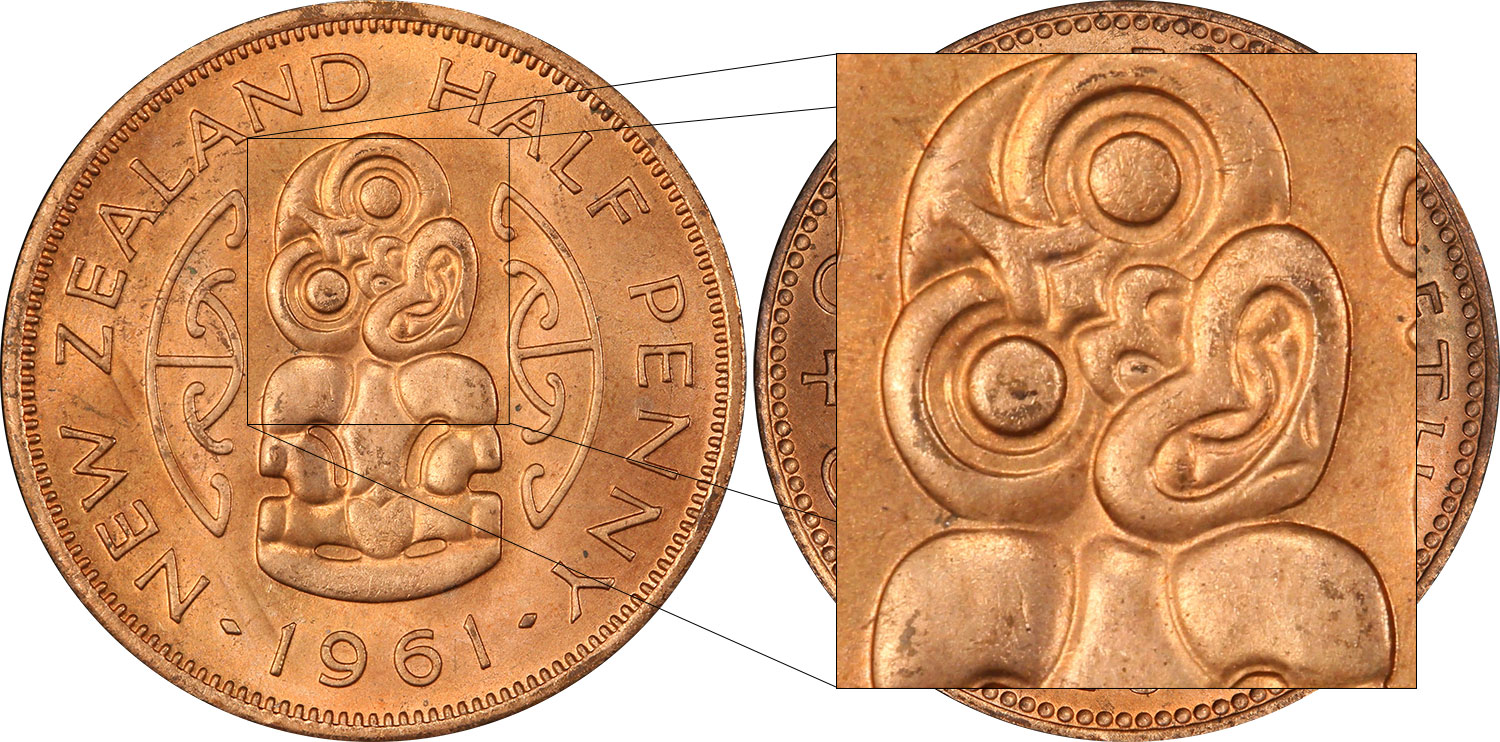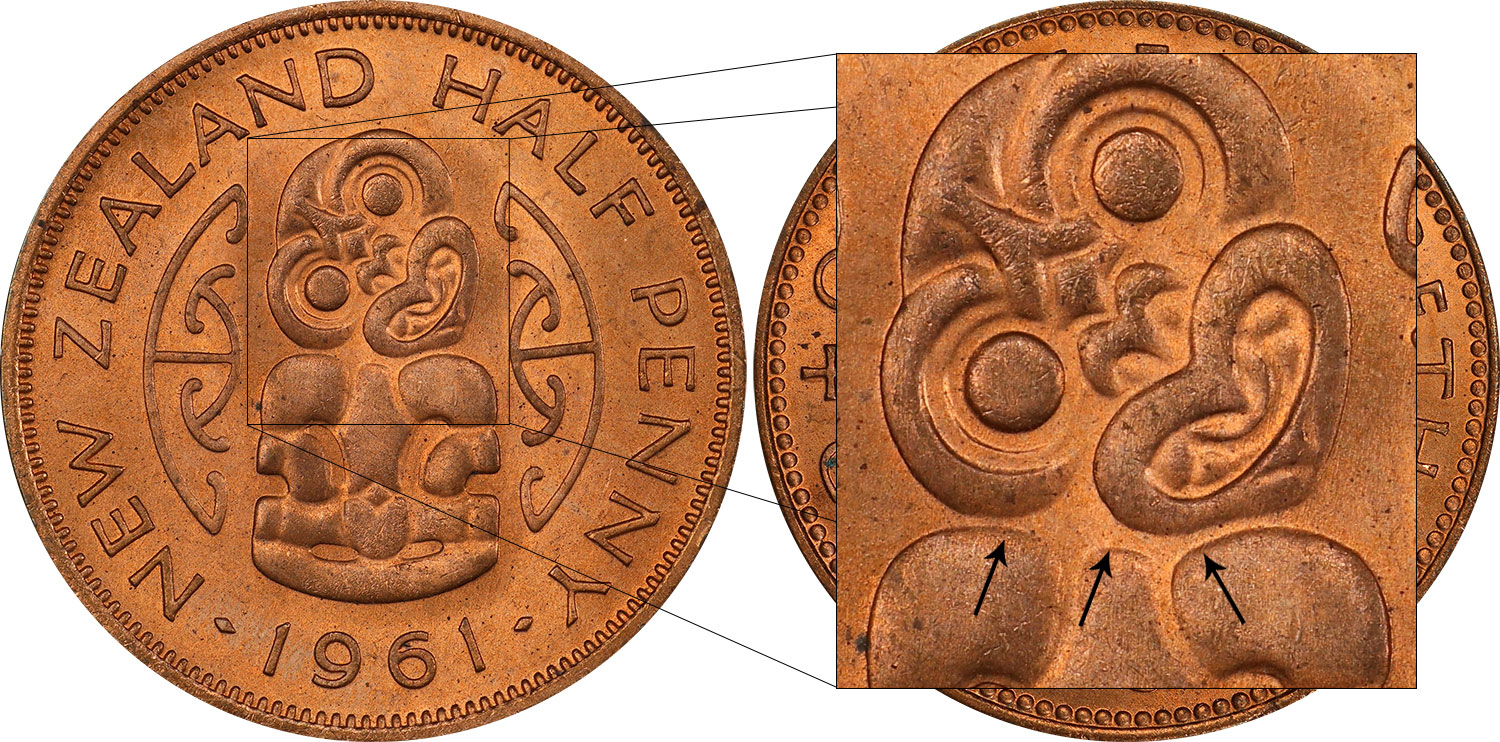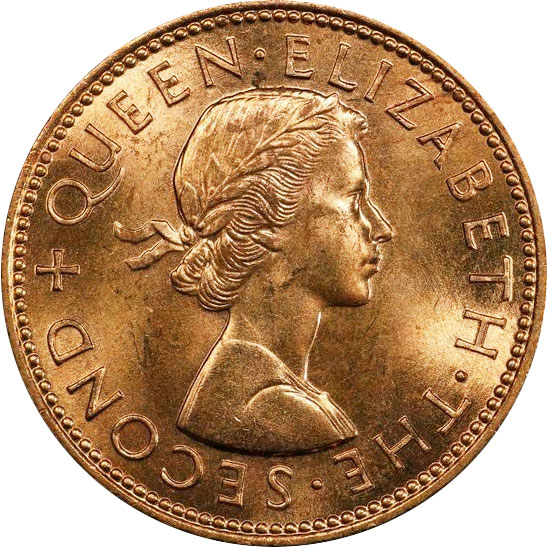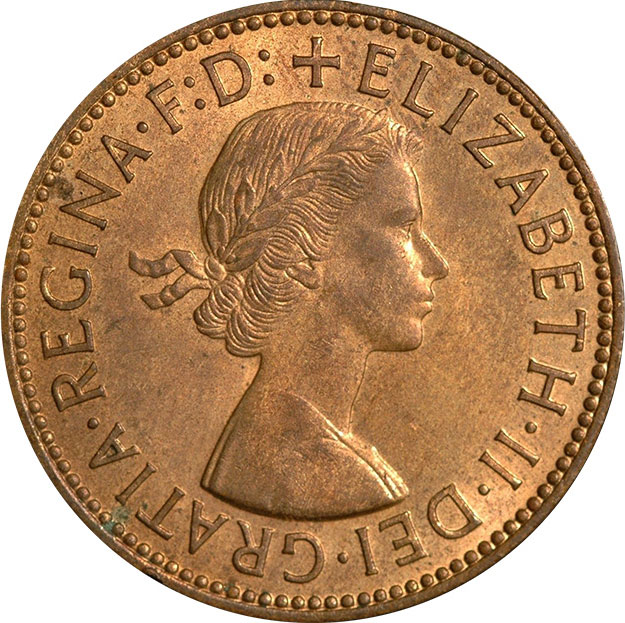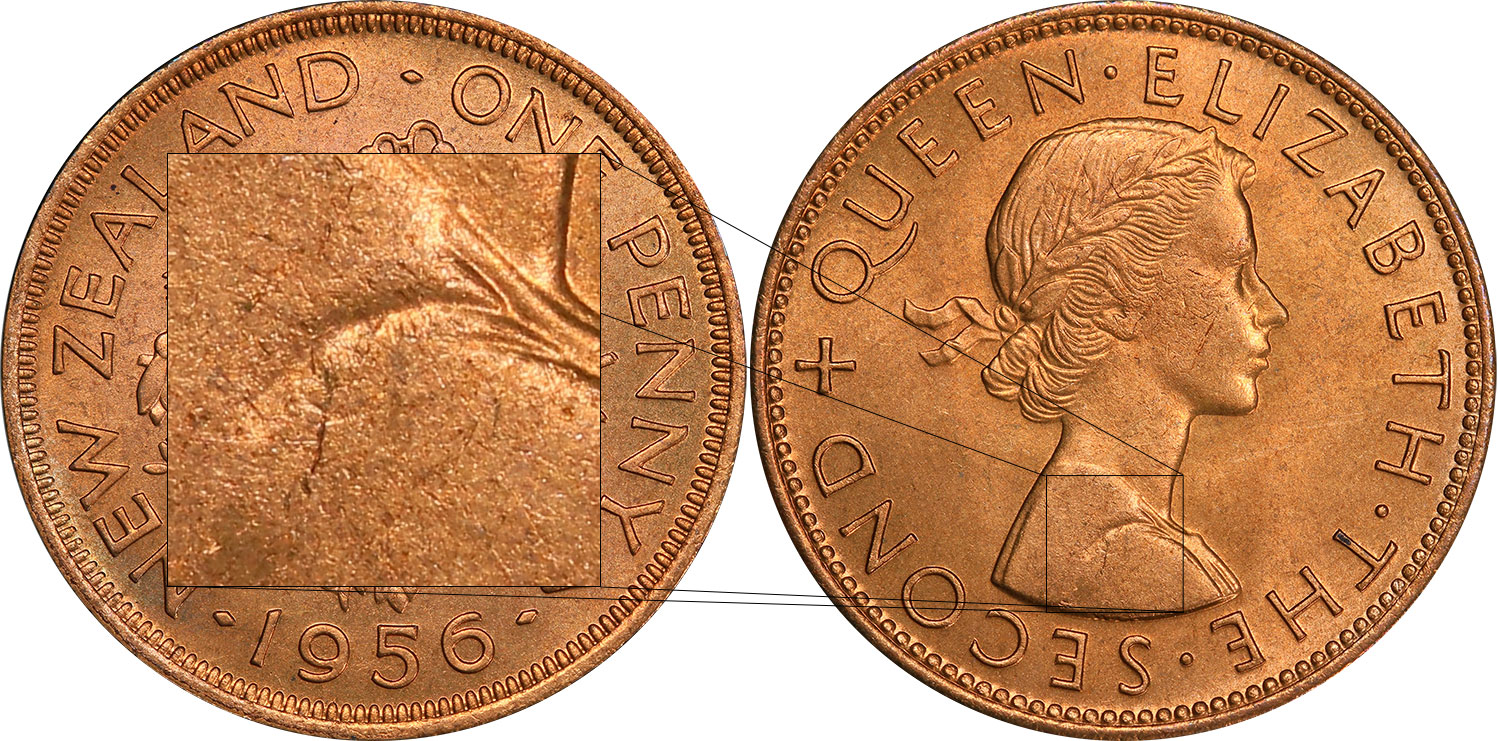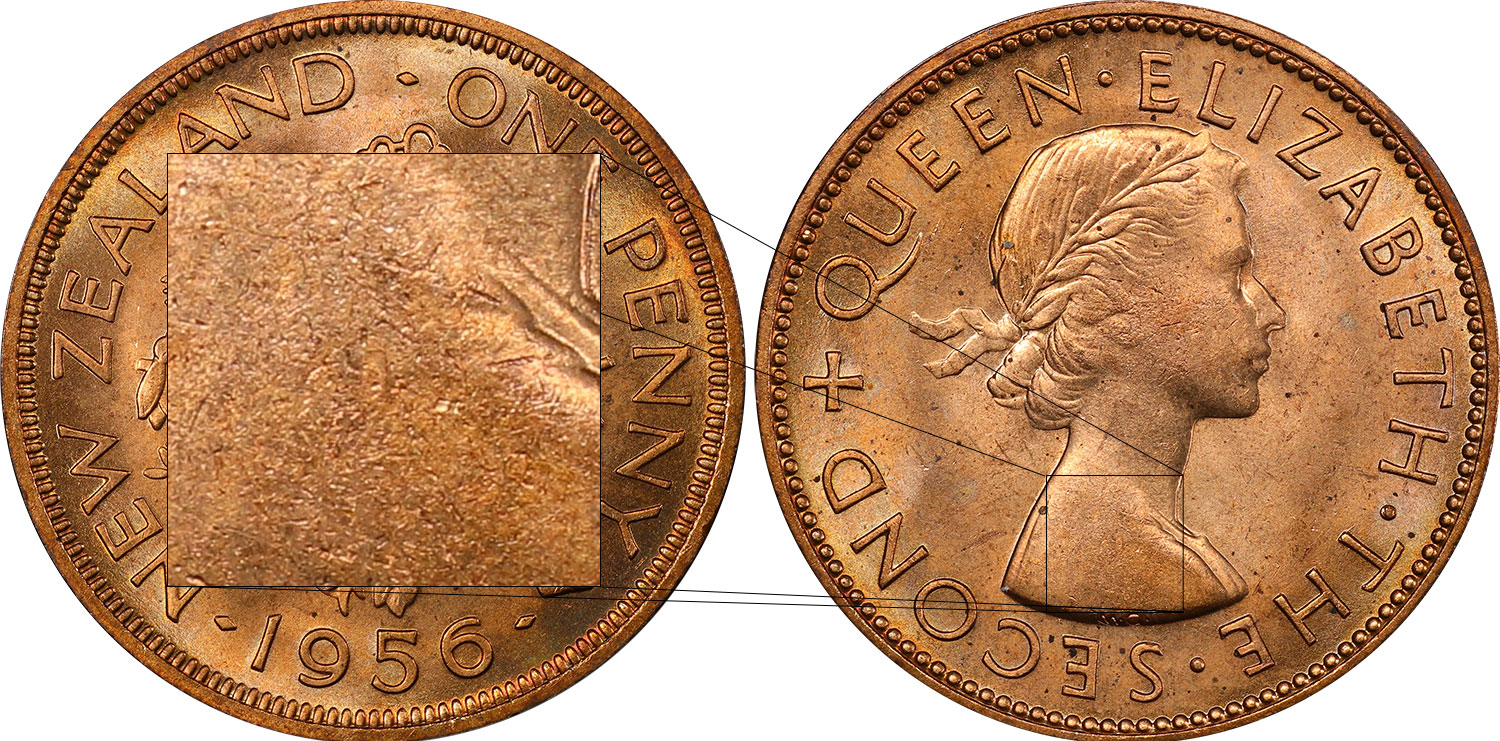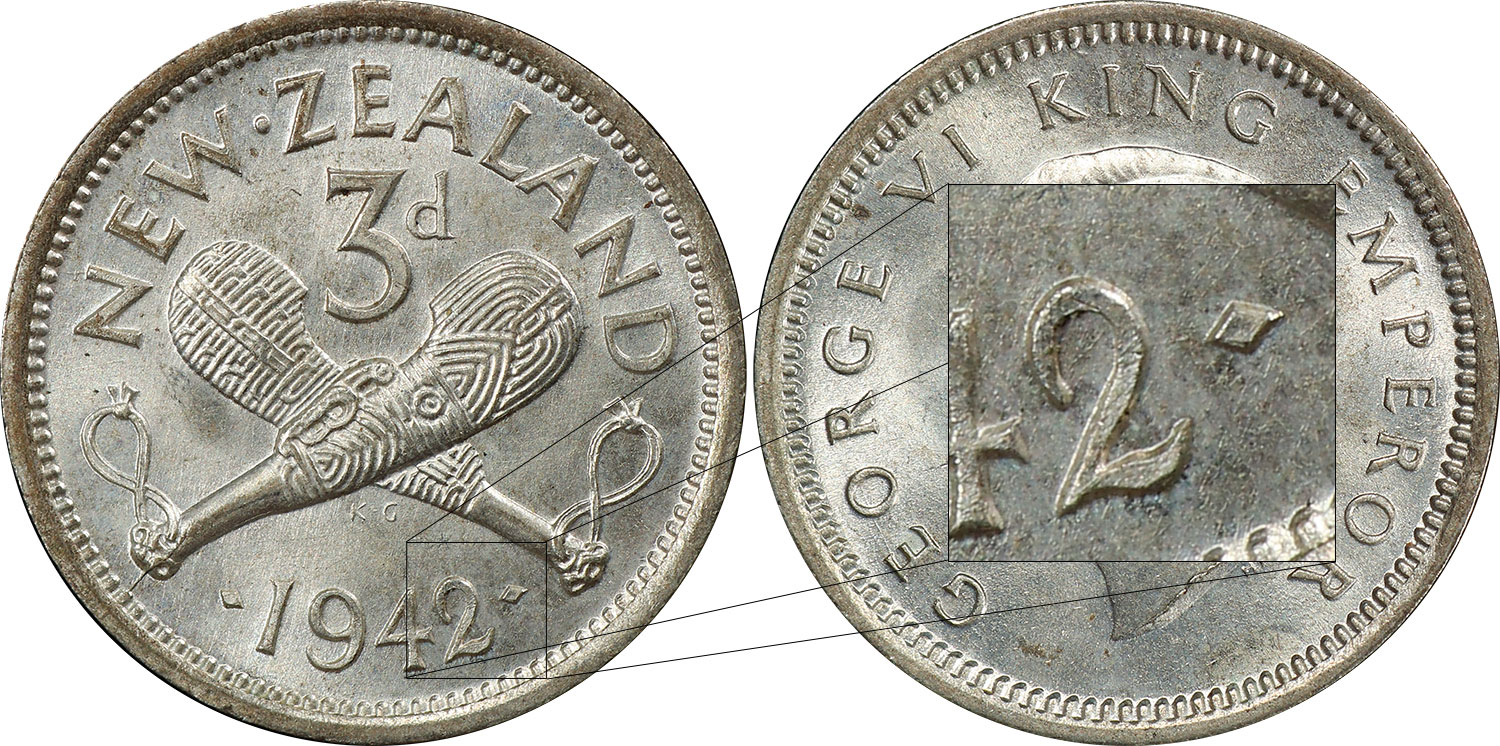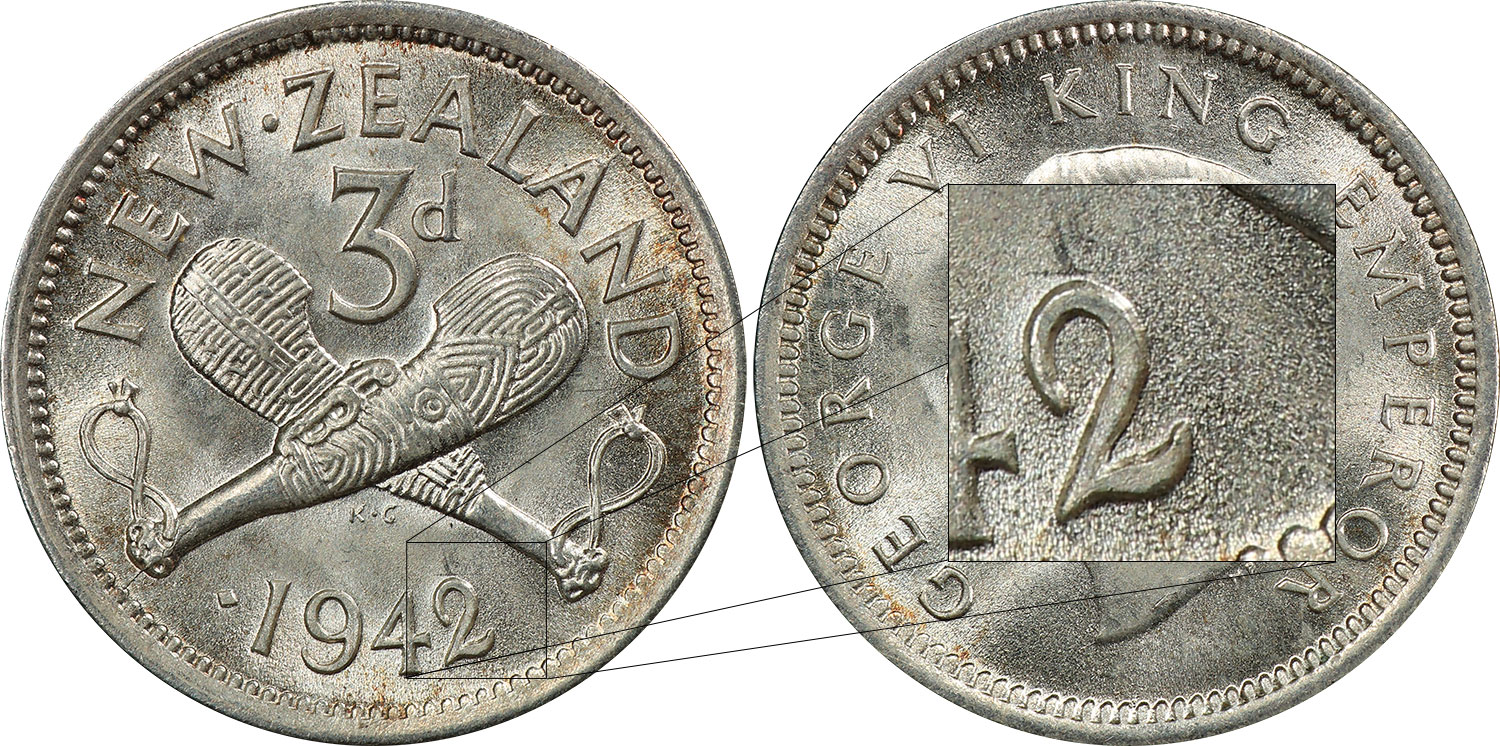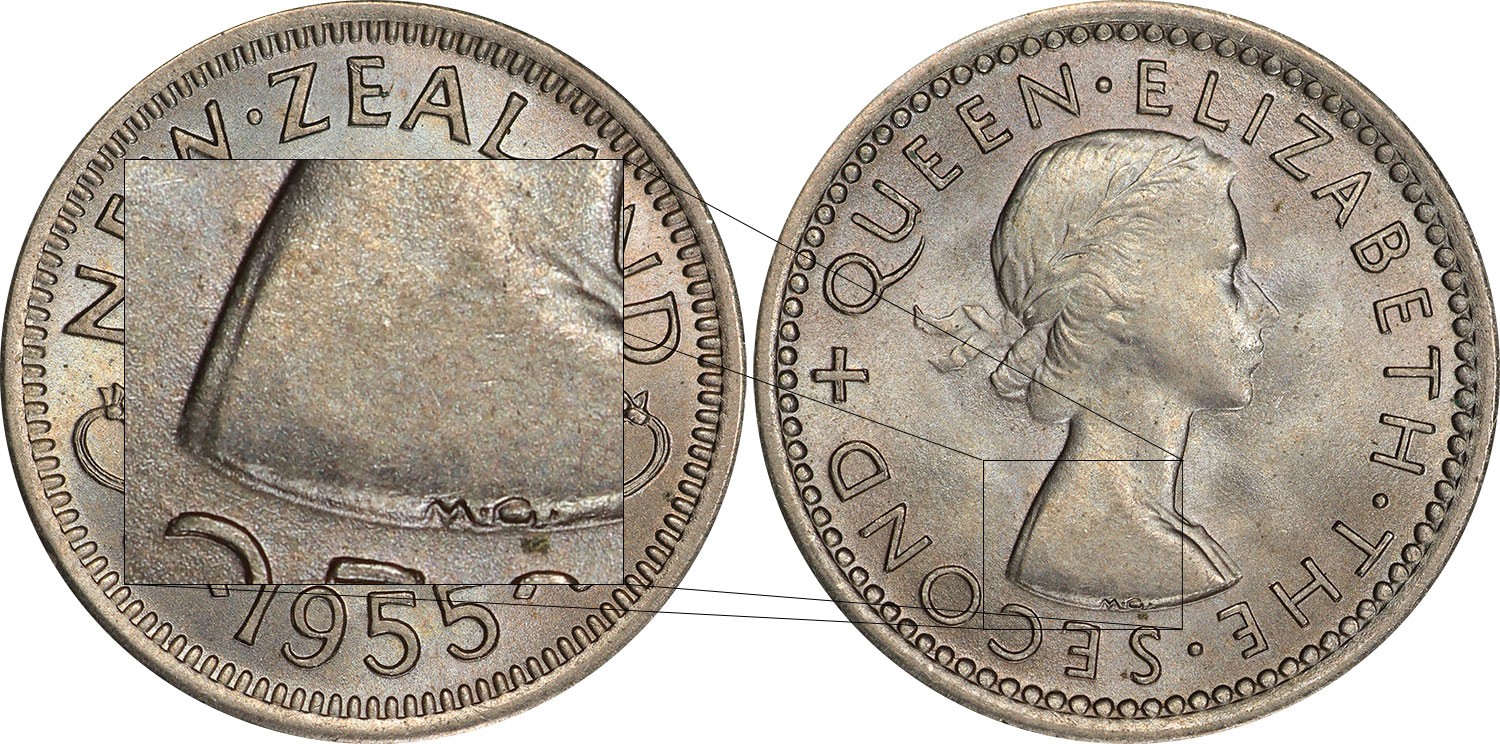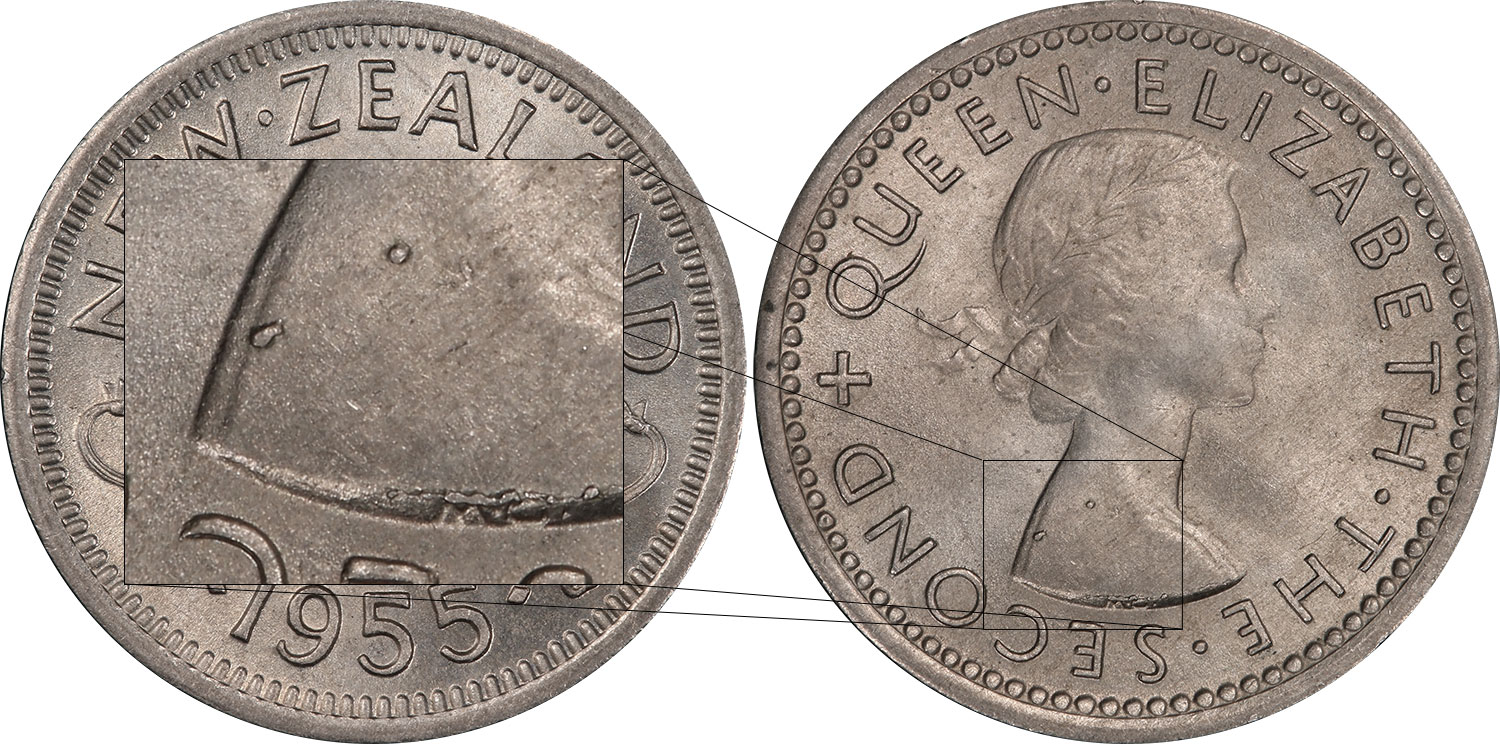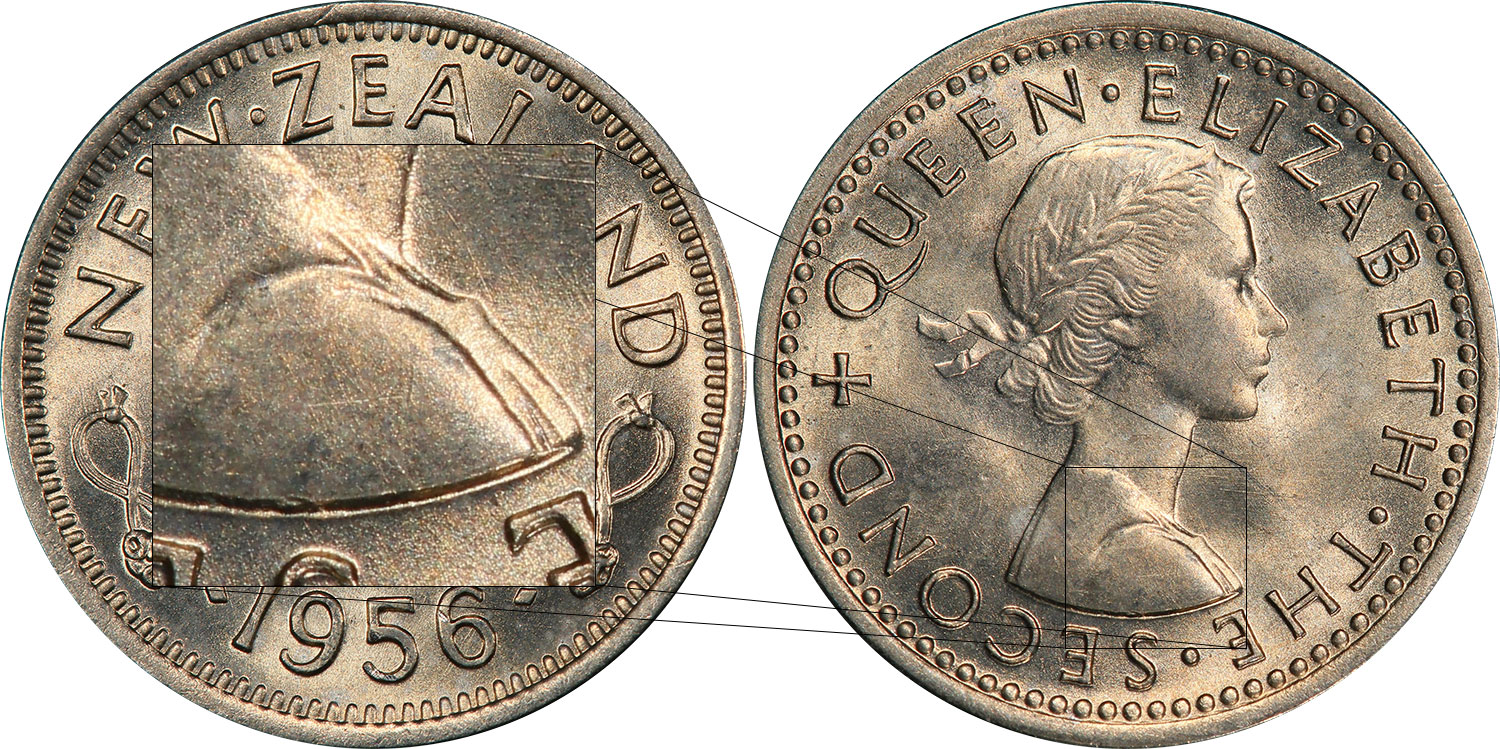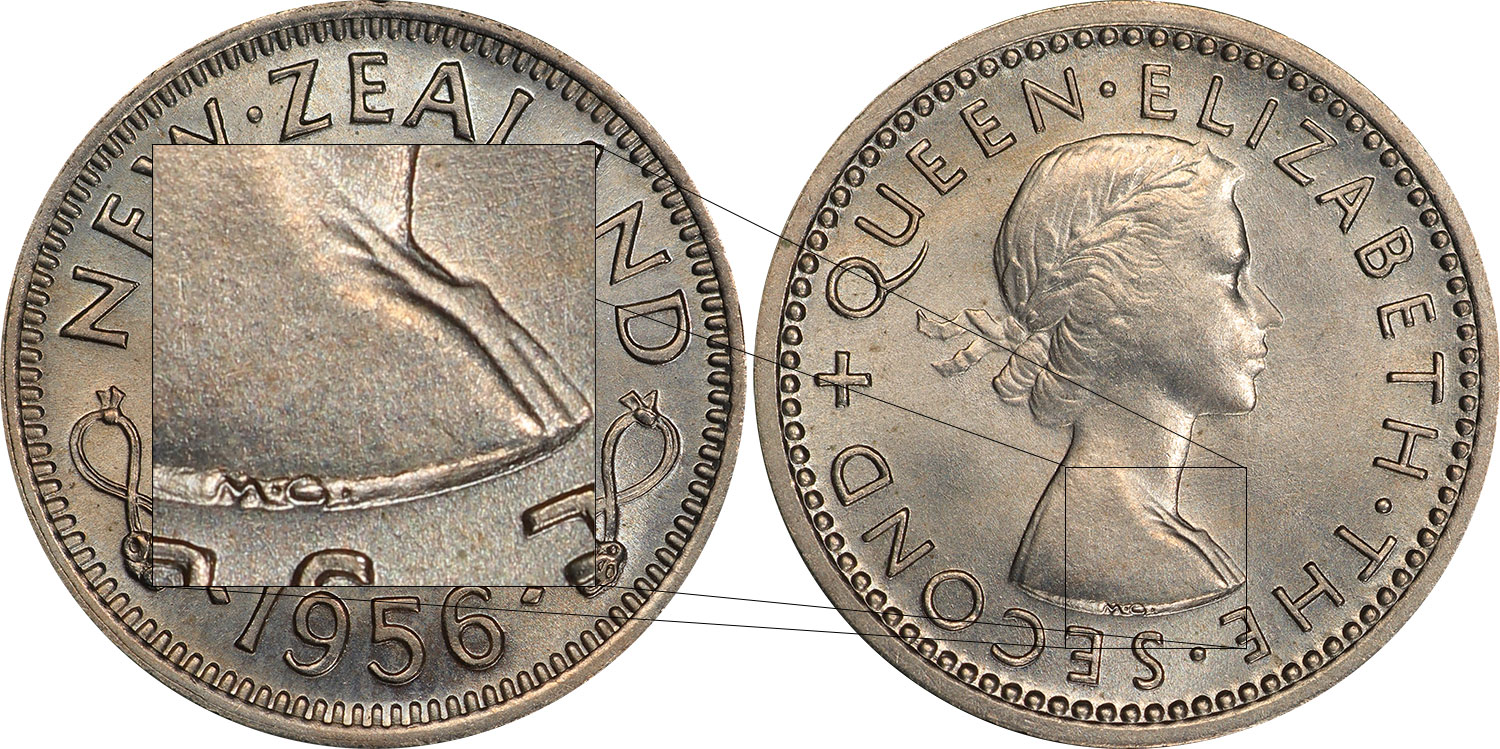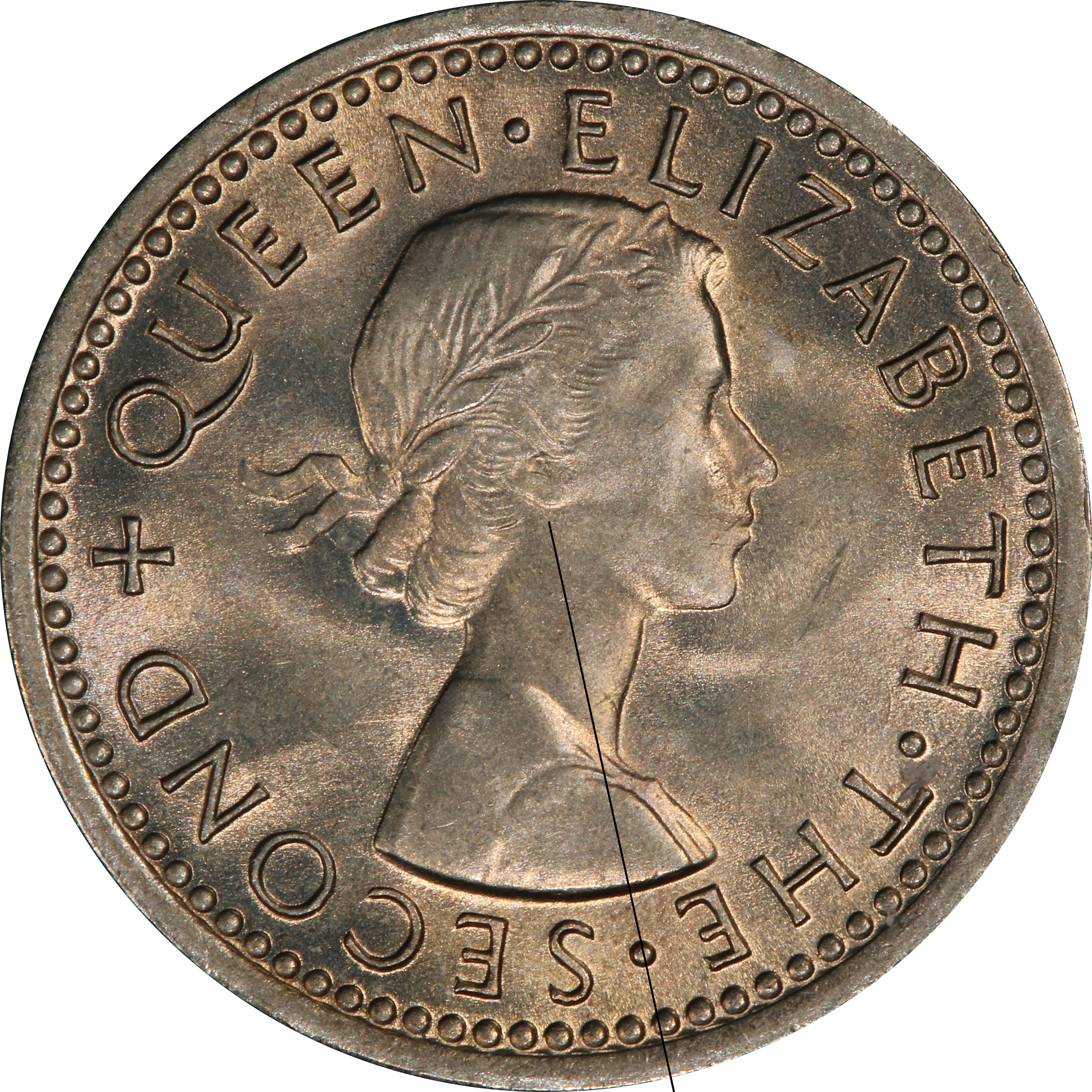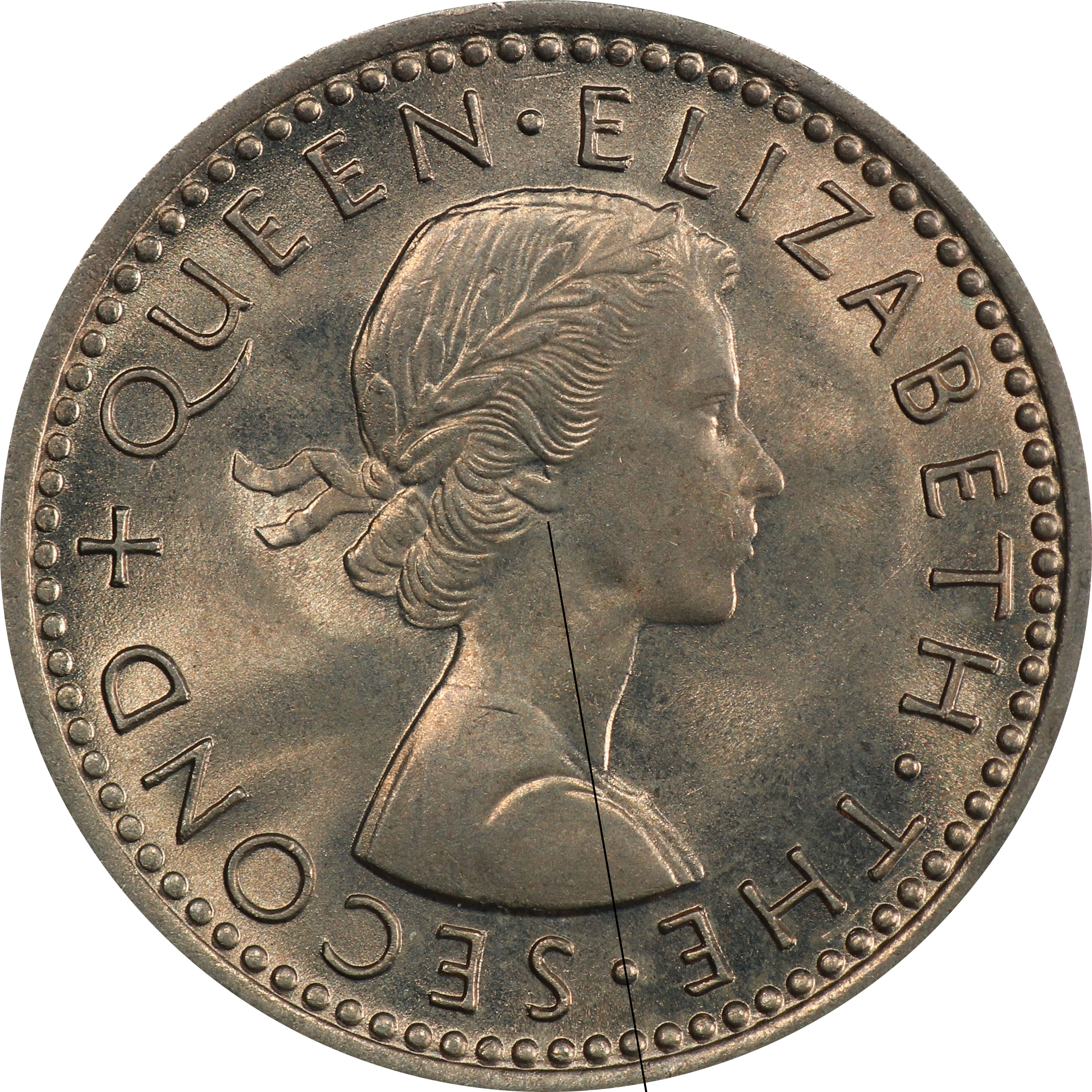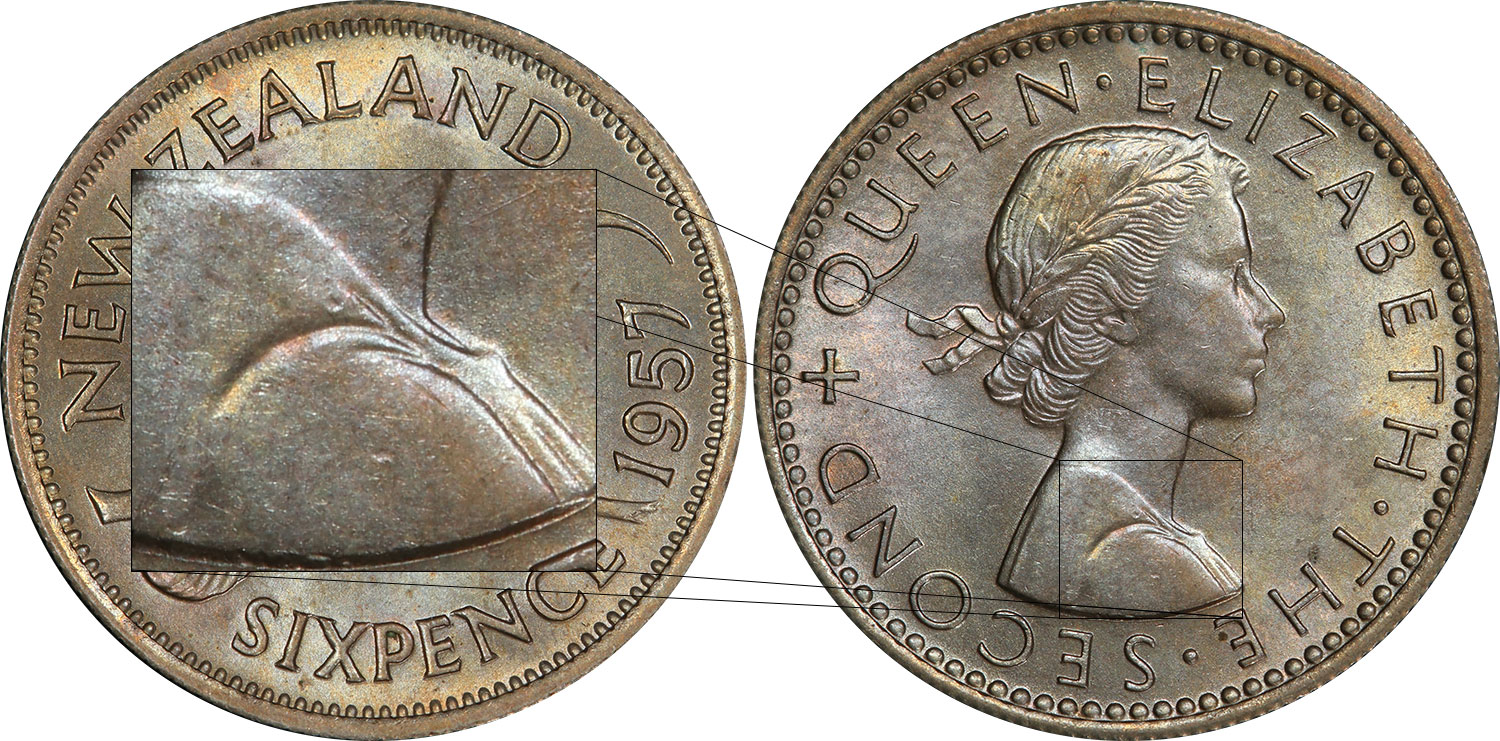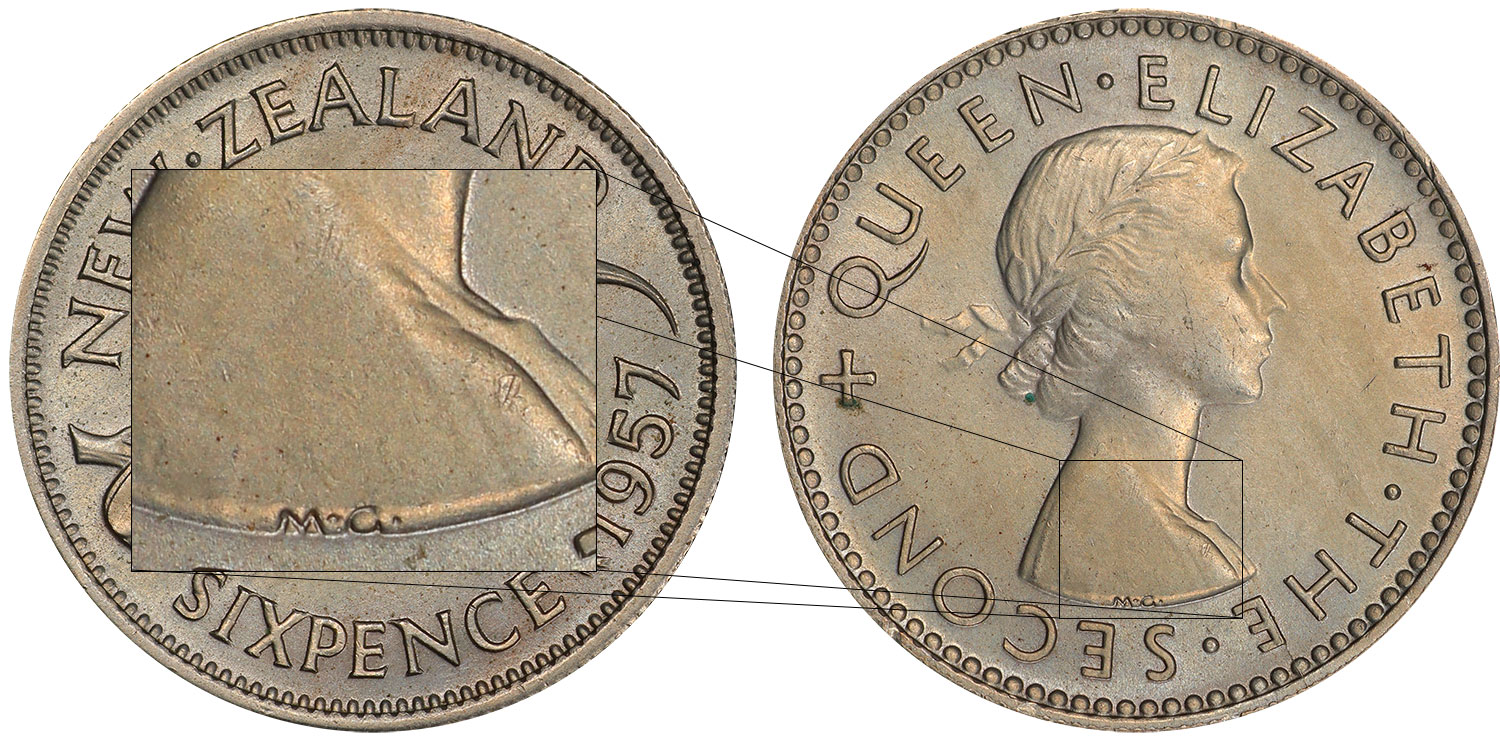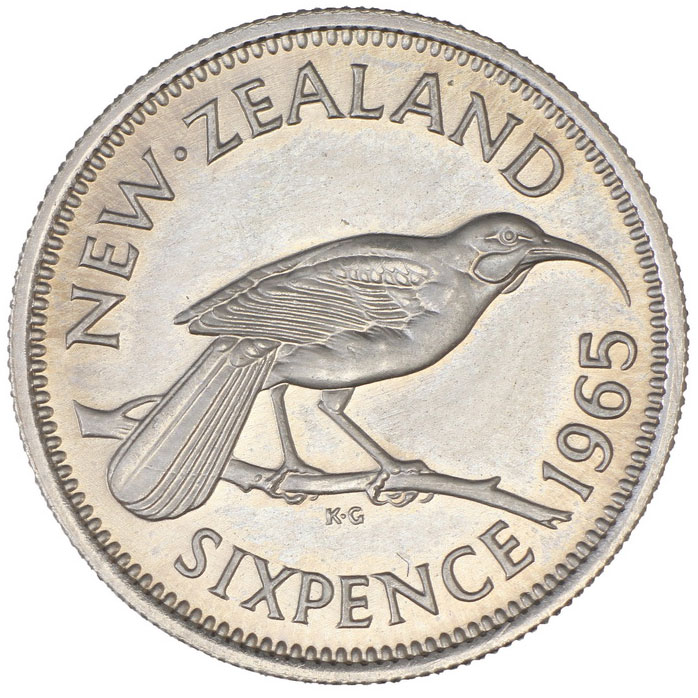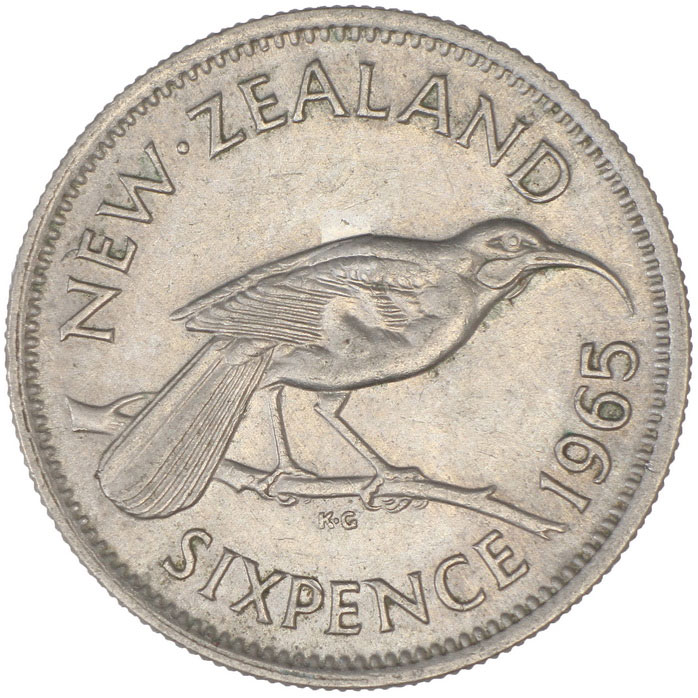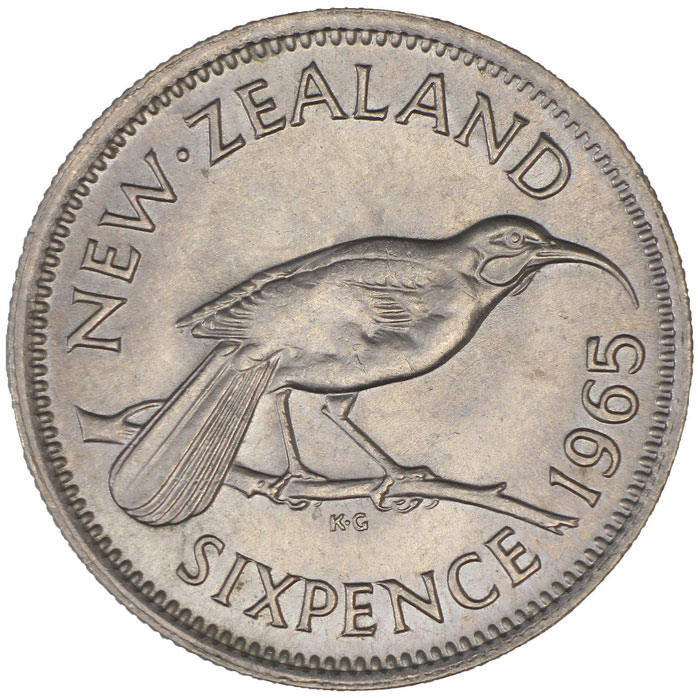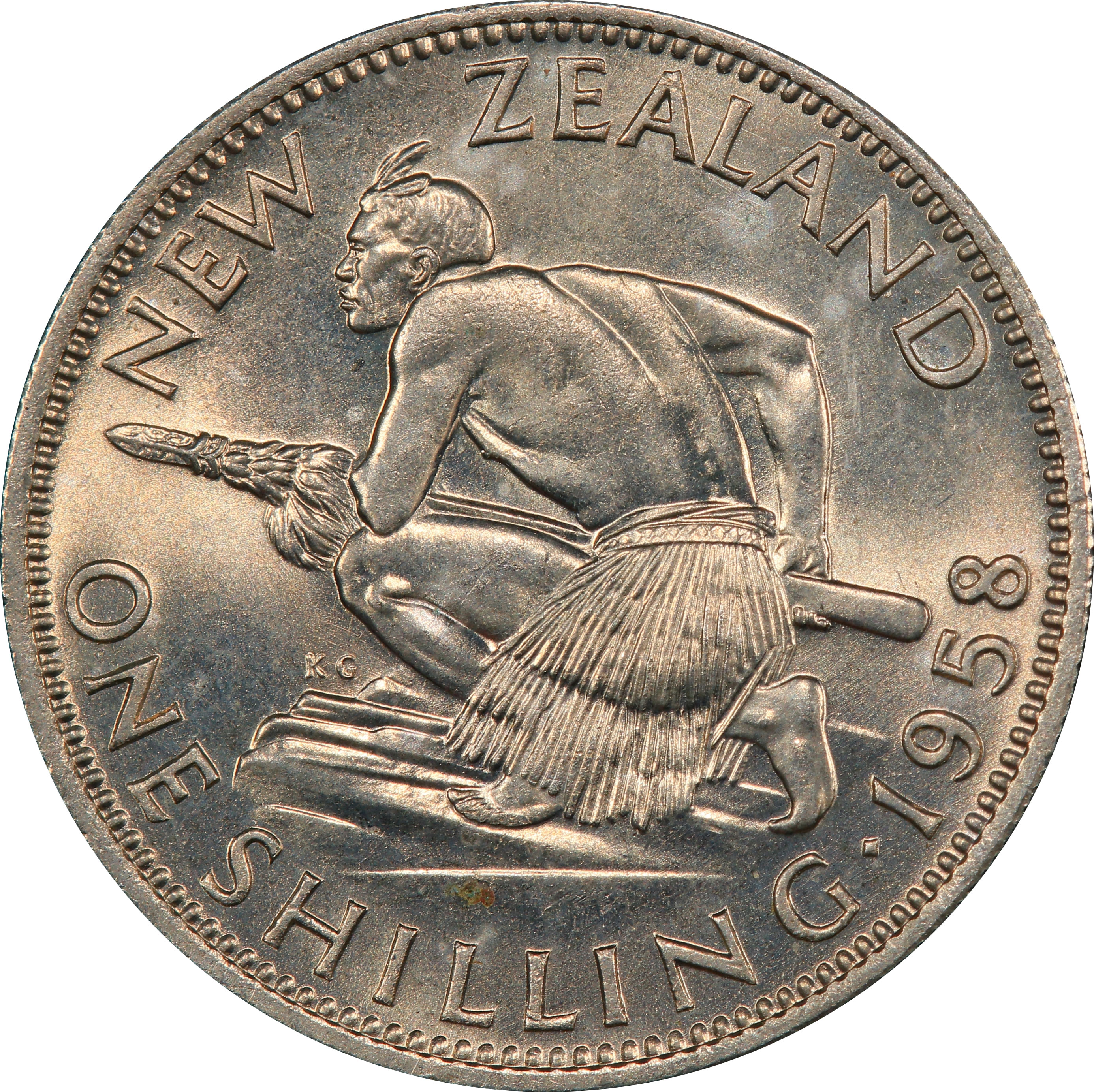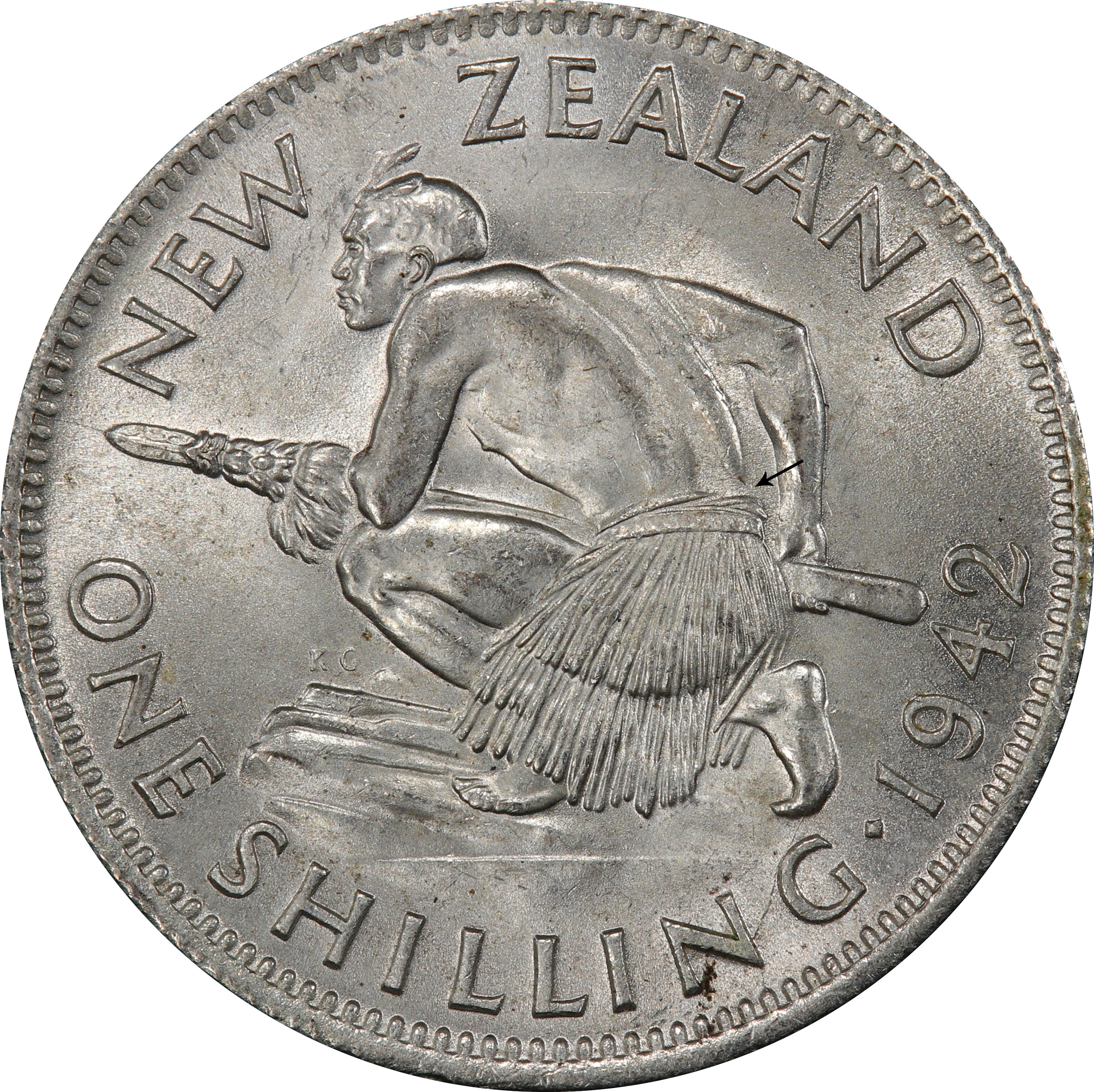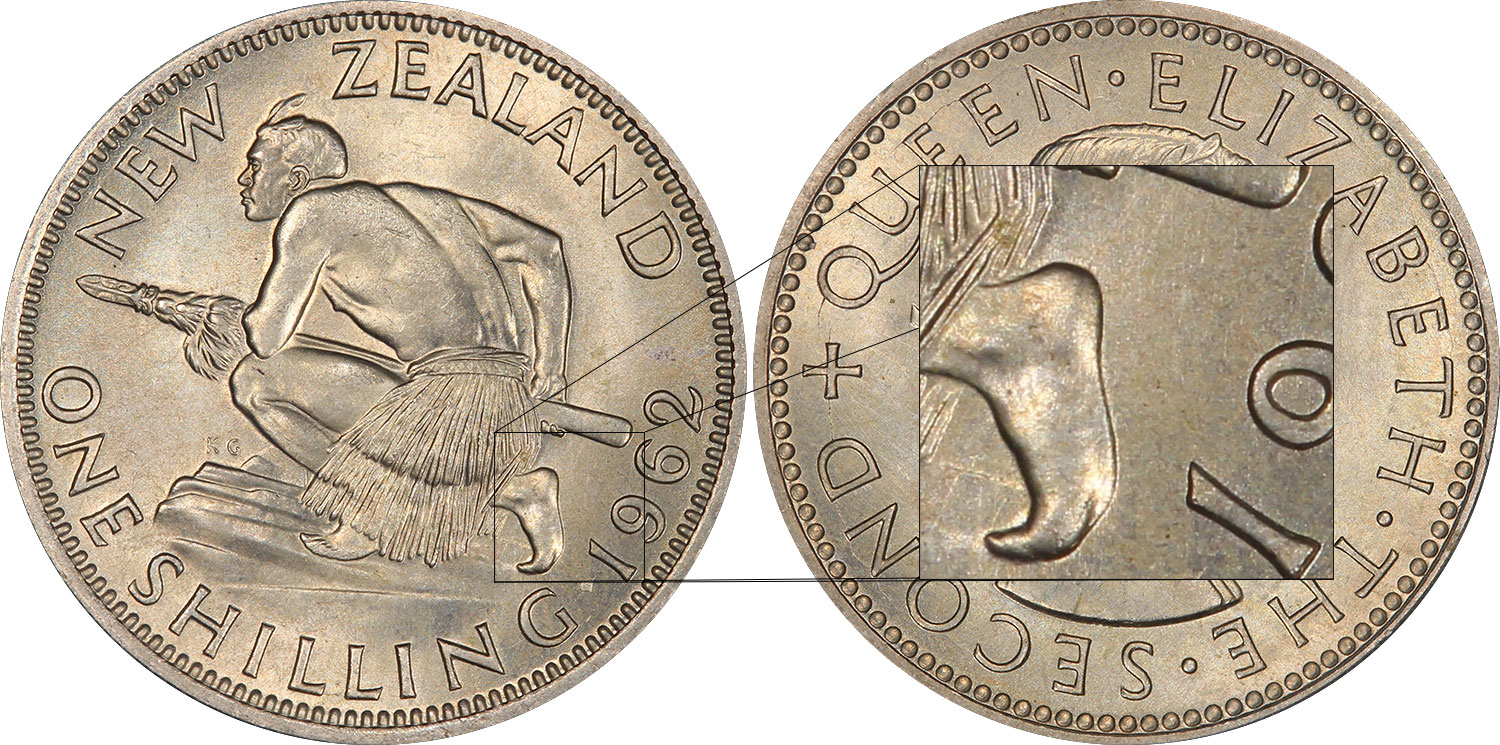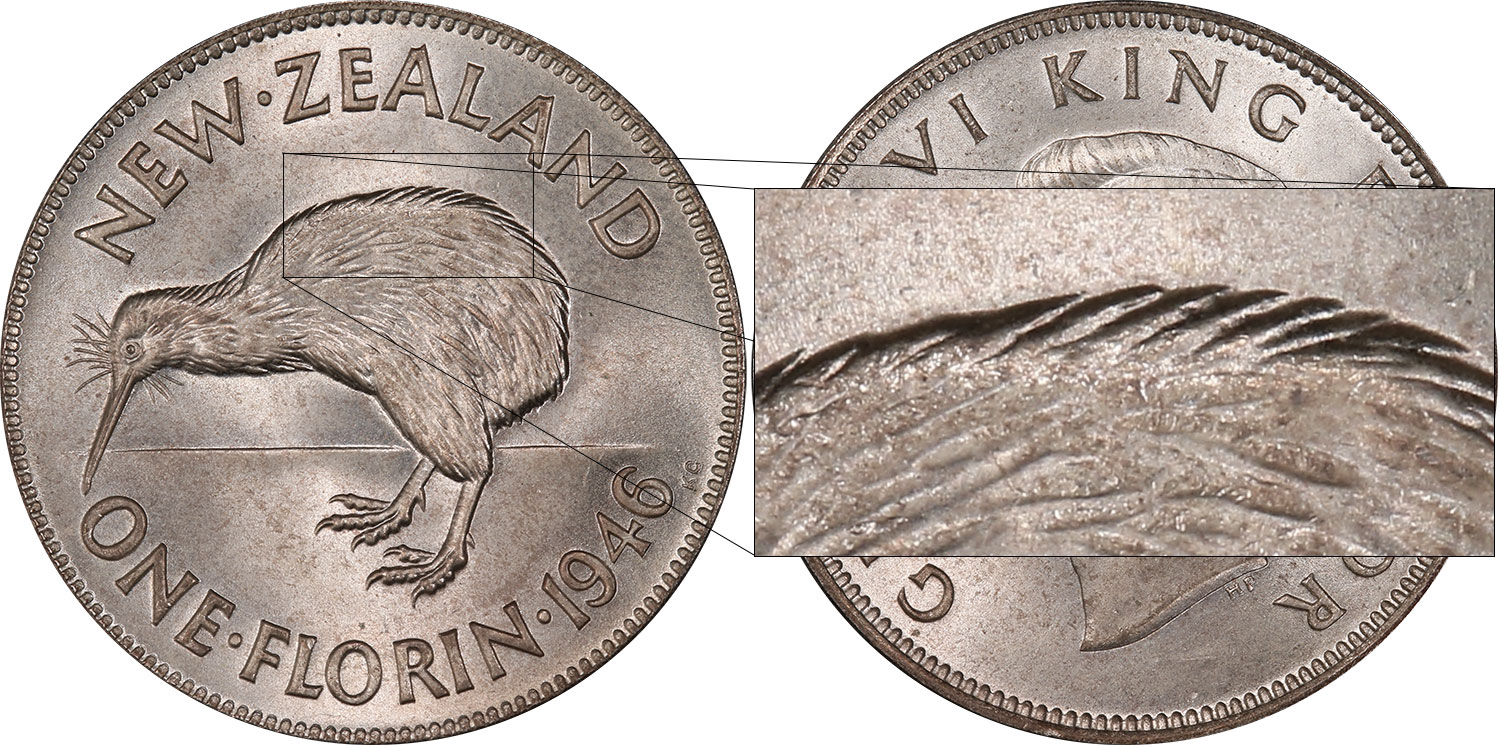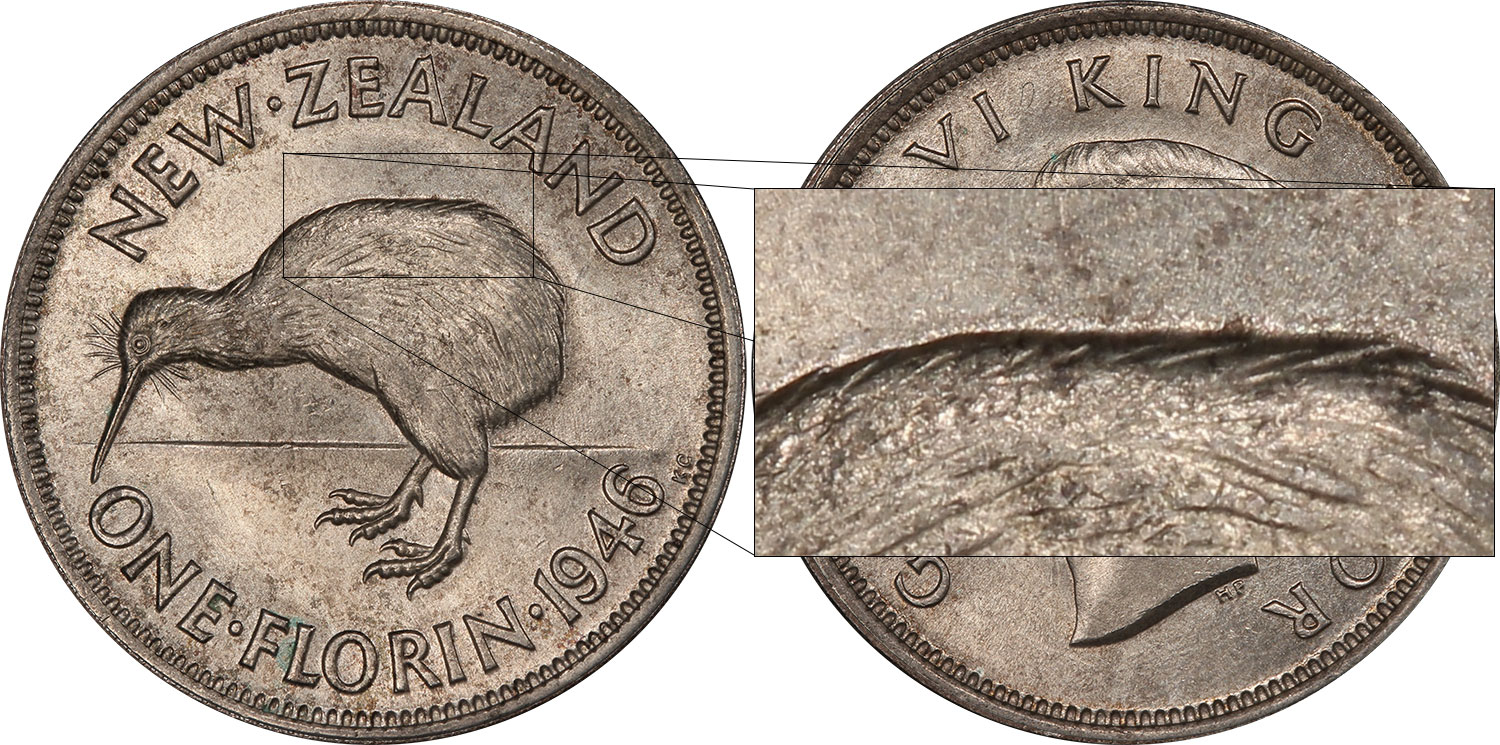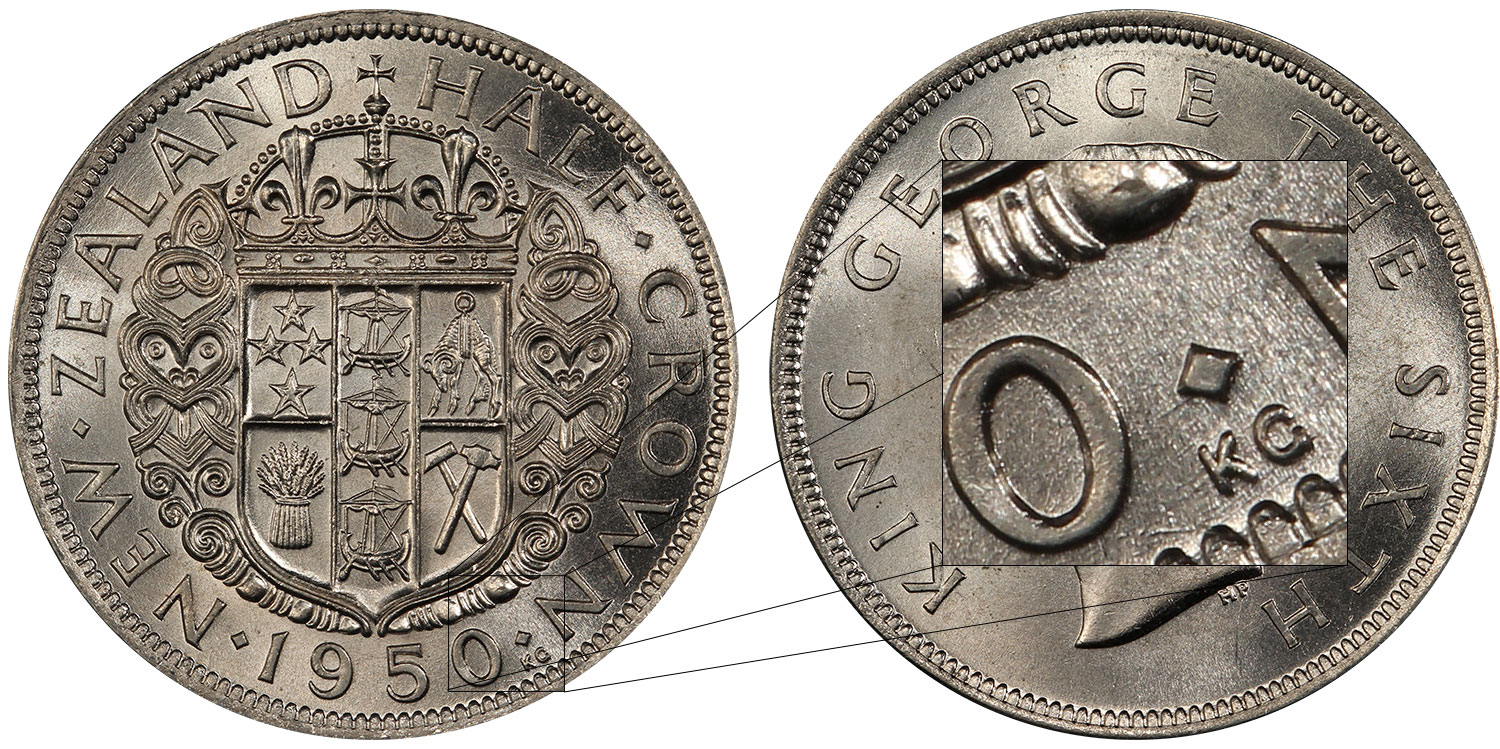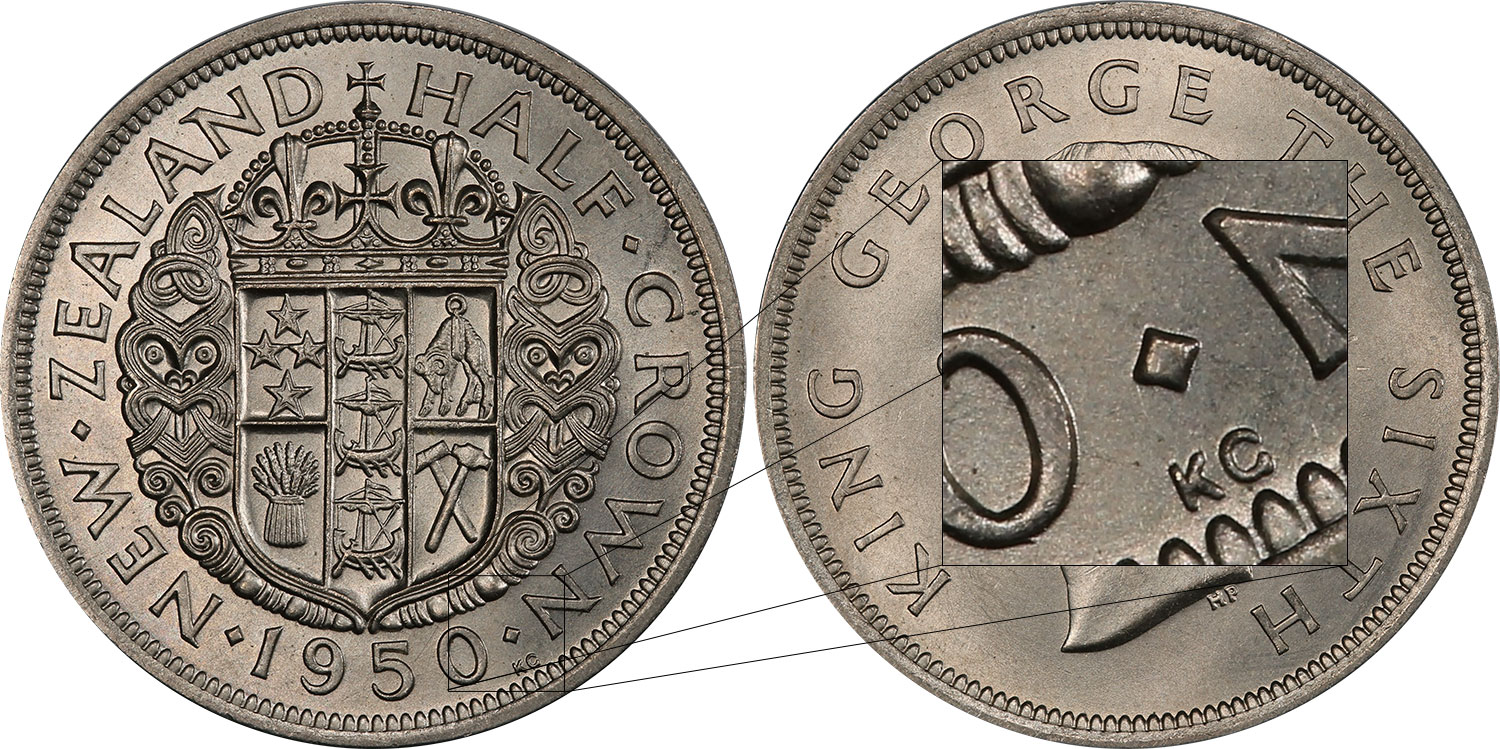New Zealand pre-decimal coins varieties
By CAA | Thursday, 9 December 2021
Here's the list of most popular, recognized and accepted varieties of the New Zealand pre-decimal coins period.
Half Penny 1961 - Broken neck
The space between the head and body of the M?ori hei-tiki (neck pendant) is larger on the broken neck variety. Probably due to a polished die.
Half Penny 1965 - Mule
The obverse used to strike the mule coin is the UK obverse. Extremely rare.
Penny 1945 - Burnished
The Burnished penny was struck on darkened planchets to discourage hoarding of normal bright shiny coins. Hypothesis #1: Anyone familiar with English coins will know there are lots of examples of this practice. Because New Zealand coins were struck in England it is believed the planchets were mixed up and intended for English coins. Hypothesis #2: Burnished coins were dipped in a sodium thiosulphate solution to darken it.
Penny 1956 - No strap (strapless)
The first design of the portrait of the new Queen Elizabeth II was made in England by sculptor Mary Gillick. A strap was added to the shoulder Queen in the 1950's.
Threepence 1942 - 1 dot
The dot after the date was removed at some point on the reverse.
Threepence 1955 - 2 dots
Two dots caused by a chipped die are visible on the obverse of the coin.
Threepence 1956 - No strap (strapless)
The first design of the portrait of the new Queen Elizabeth II was made in England by sculptor Mary Gillick. A strap was added to the shoulder Queen in the 1950's.
Threepence 1957 - Beads
An easy way to differentiate these two varieties is to look at the dot between The and Second and the alignement to the nearest bead (left or right to it).
Sixpence 1957 - No strap (strapless)
The first design of the portrait of the new Queen Elizabeth II was made in England by sculptor Mary Gillick. A strap was added to the shoulder Queen in the 1950's.
Sixpence 1965 - Broken wing
The middle of the reverse shows a filled or polished die error marked by a flattening of detail toward the bac k of the hula's wing. Type 1 and Type 2 exist, type 2 showing a larger flattening.
Shilling 1942, 1958 and 1965 - Broken back
Probably caused by a die polishing, die deterioration or filling.
Shilling 1962 - No horizon
Florin 1946 - Flatback
Between 1946 and 1965, the dies show a flattened featherless back of the kiwi. In 1946, old and new reverse dies were used to produced the florins.
Crown 1950 - Initials close to
In 1950, the reverse was slightly modified. The initials K.G. began to be far from the diamond during that year.

